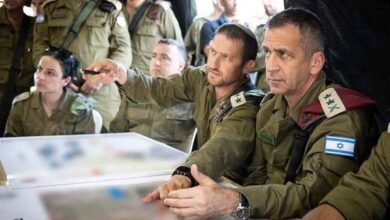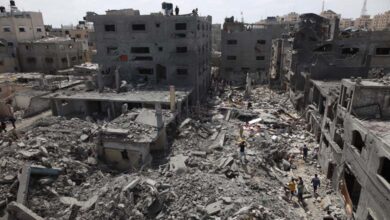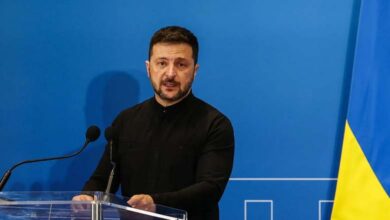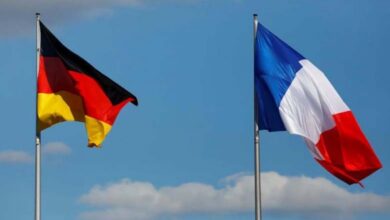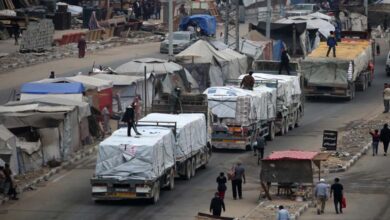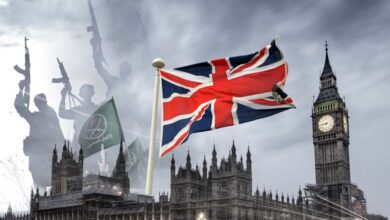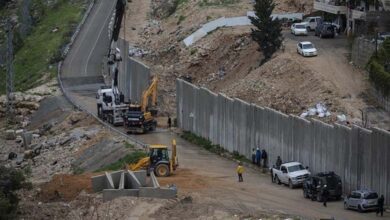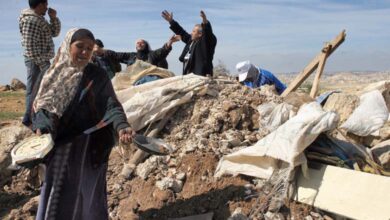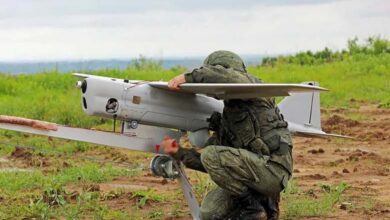Al-Burhan seeks support in Algeria after the failure of his external tours
Algeria's entry into the crisis is likely to exacerbate the war, as all indicators suggest an arms deal for the Sudanese army
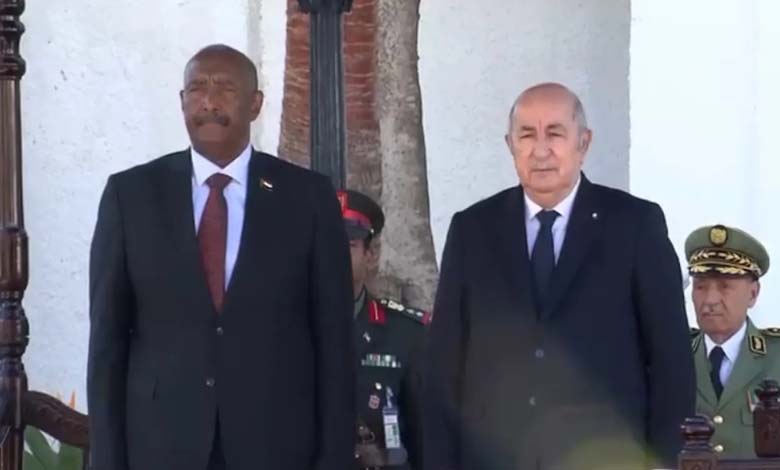
The Sudanese President of the Sovereignty Council and Army Commander, Abdel Fattah al-Burhan, is seeking military and political support from both near and distant quarters after the failure of his external tours. His entry into the Algerian arena could exacerbate the war, given that all indications point to an arms deal for the Sudanese army.
Al-Burhan‘s weakened position in the war has embarrassed him and underscored his failure to control the situation, having promised Sudanese citizens that battles would be resolved within days. His visits to six countries have failed to provide financial or moral support to bolster his resilience. Today, he turns to Algeria in search of support.
Faced with a dire situation, he seeks any ally to support him in confronting the difficult circumstances he faces. His meeting with President Abdelmadjid Tebboune aims to exacerbate crises with some countries in the region, accusing them of maintaining a balanced stance, whether regarding the Sudanese war or the Moroccan Sahara issue.
The Sudanese Armed Forces published a statement on their Facebook account indicating that al-Burhan will hold discussions with Tebboune during the visit, addressing the bilateral relations between the two countries and ways to enhance them, along with issues of mutual interest.
Accompanying him during his visit to Algeria is the Director of the General Intelligence Service, Lieutenant General Ahmed Ibrahim al-Burhan, emphasizing its military nature and refuting any claims regarding Algerian efforts to halt the war or find a solution to the crisis in Sudan. Tebboune’s bias towards one of the fighting parties is evident.
Algeria’s involvement in the crisis could exacerbate the war and its humanitarian effects on the Sudanese people, as all indicators suggest an arms deal for the Sudanese army.
Algeria was supposed to maintain a mediator and supportive stance for dialogue and cessation of hostilities, as it seeks to portray itself as a peacekeeper on the African continent. Moreover, the UN envoy to Sudan, veteran Algerian diplomat Ramtane Lamamra, adds to this image.
Lamamra’s meetings, involving political and military components, during the ongoing war in the country, have raised concerns among civilian forces seeking a political solution to end the war in Sudan.
Lamamra began his mission in Sudan last November with a visit to Port Sudan, where he met with Army Chief Lieutenant General Abdel Fattah al-Burhan and several political factions loyal to the army to discuss ways to end the crisis that erupted since last April.
With al-Burhan‘s visit to Algeria, questions arise about Lamamra, his movements, and his UN agenda: Is he committed to his UN mission or does he serve the interests of the Algerian regime?
The visit comes amidst setbacks for Algerian diplomacy in Africa, especially in Mali. On Thursday, Malian authorities announced, through a statement broadcasted on state television, the termination of the peace and national reconciliation agreement sponsored by Algeria, following the change in stance by the signatory groups, along with the hostile acts carried out by the mediator, referring to Algeria.
The peace and reconciliation agreement was signed with the Coordination of Azawad Movements in 2015, mediated by Algeria, to end violence in the region known as “Azawad,” which includes cities like Timbuktu, Gao, and Kidal in northern Mali.
Bamako accused Algeria of interfering in its internal affairs, stating in a statement that there seems to be a misconception among Algerian authorities who view Mali with “contempt and arrogance.” The statement pointed out that the transitional government is curious to know how Algerian authorities would feel if Mali received, at the highest level of the state, representatives from the movement determining the fate of the tribal area.
Today, Algeria is playing the same role in Sudan, indicating its lack of credibility as a sponsor of any diplomatic initiatives to end conflicts in the region.
The war between the warring parties in Sudan has entered its tenth month without cessation, and there is no sign of a decisive military victory for the army, while the balance of power in battles tends to favor the Rapid Support Forces.
Observers believe that al-Burhan is likely to try to capitalize on the Algerian army’s experience in imposing the status quo and solidifying its pillars of power, despite popular opposition.
The Sudanese army is also seeking a way out of the war that has plunged the country into turmoil, threatening to divide the country once again. The challenges have become extremely complex internally and externally, and the war further complicates the situation across the country.
Amidst a major dispute with African countries and member states of the African Development Organization (IGAD), which has led to a freeze in relations, it seems that the rapprochement with Algeria, which also has tense relations with its neighbors, has reached a stage of severing diplomatic ties. Both sides are trying to find ways to cooperate given their increasing isolation.
Tebboune affirmed his country’s support for Sudan to “overcome difficult circumstances and confront the forces of evil targeting it,” stating in a joint press statement that Algeria always supports Sudan, emphasizing the convergence of views between Algeria and Sudan on many regional and international issues.
On the other hand, al-Burhan stated that his country “is subject to a conspiracy with the complicity of regional and international partners (not specified).” He pointed out that there is a consensus in views between Khartoum and Algeria on many current issues.
Al-Burhan accuses some regional and international countries of supporting Rapid Support Forces leader Mohamed Hamdan Dagalo “Hemeti” under false pretenses.
In contrast, the Algerian army is exploring markets to export some of its manufactured weapons, especially armored vehicles and multi-purpose military trucks, while Sudan is considered one of these potential markets due to al-Burhan‘s obstruction of all regional attempts to achieve a ceasefire and his need for weapons to continue his efforts to monopolize power.
Al-Burhan had previously taken a step towards opening up to Iran for the same reasons, as the Sudanese Ministry of Foreign Affairs announced last October that Sudan would resume diplomatic relations with Iran. It added that the decision to resume relations came after several high-level contacts between the two countries and would serve the common interests of both countries.
Sudan had severed its diplomatic relations with Iran in 2016 following the storming of the Saudi Arabian Embassy in Tehran. Iranian affairs expert Mohammed Mohsen Aboul-Nour told “Al-Arab” newspaper that al-Burhan‘s need for arms from any source led him to turn to Iran. In the absence of receiving military aid from countries with which he has had close relations for years, he thought that Iran might be a refuge.
The decision comes after seven years of severed relations between the two countries and three months after a meeting between the foreign ministers of the two countries.
International efforts to end the ongoing war between the Sudanese army and the Rapid Support Forces have intensified over the past 10 months. Analysts believe that there is a growing conviction among the international community and the United Nations of the need to resolve the crisis as quickly as possible to stop the alarming security and humanitarian deterioration in a country where more than 20 million people lack the necessities of life according to the latest UN report.
Al-Burhan is setting impossible conditions for negotiations, saying that the only way to end the war against the Rapid Support Forces is linked to their withdrawal from the state of Jazeera and central regions and the rest of the cities, while he lost these areas in battles.
He also demanded that unnamed countries in the region stop interfering in Sudanese affairs and support the Rapid Support Forces in the ongoing war since mid-April last year.
Al-Burhan considers the reception of any country to an adversarial party that does not recognize the existing Sudanese government to be explicit hostility towards the Sudanese state, and Sudan has the right to take measures to preserve its sovereignty and security, after Hemeti conducted a new African tour to several countries during which he expressed readiness to negotiate, while al-Burhan persisted in his refusal to consider any solution other than a military one.



